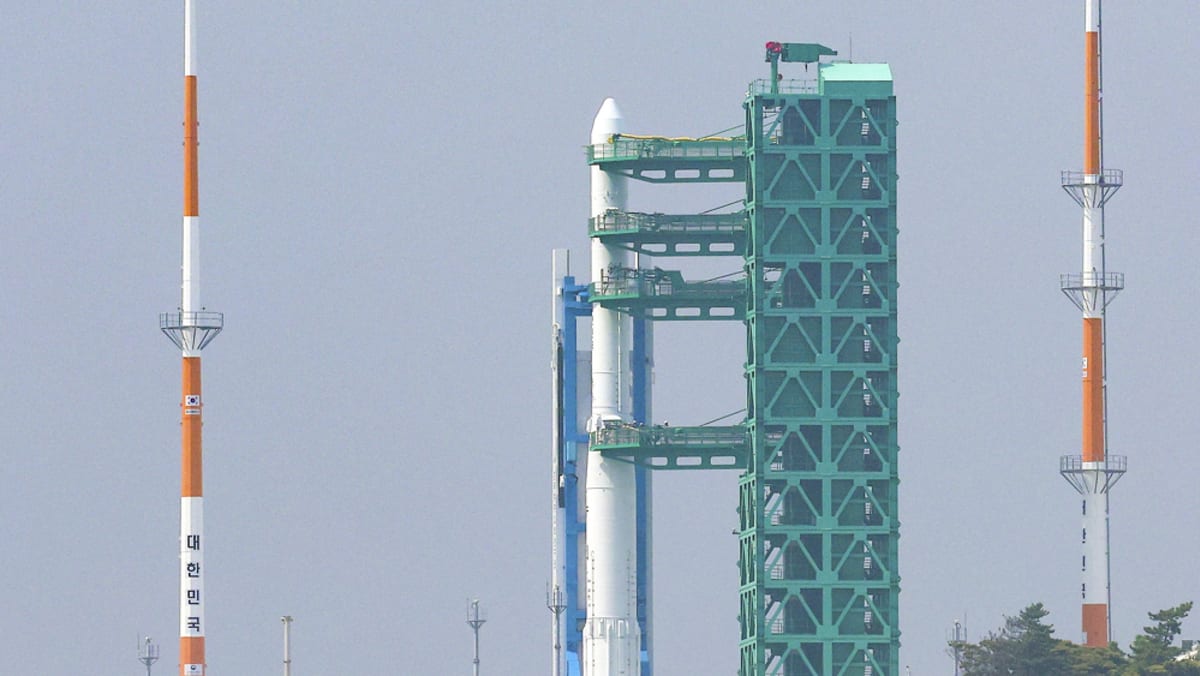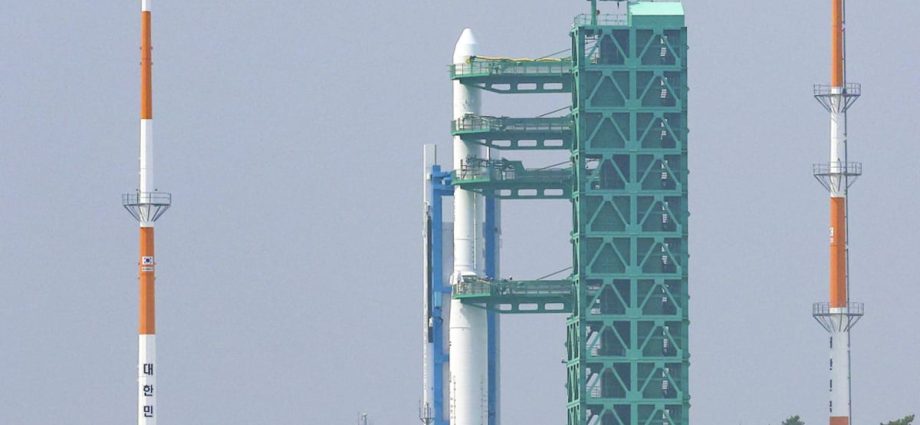
SEOUL: South Korea will launch its homegrown Nuri space rocket at 6.24pm (5.24pm, Singapore time) on Thursday (May 25), after the launch was cancelled a day earlier due to technical glitches, the science ministry said.
The third flight of the Nuri rocket would mark a major step in South Korea’s nascent space programme as the country seeks to become a key player in an intensifying race with its Asian neighbours.
The ministry called off a planned launch on Wednesday just hours before the scheduled time, citing technical problems, which officials said described as communication errors within the system that controls a helium tank on the launch pad. They said that issue was fixed after overnight work.
“The engineers have modified the control programme, and we finally confirmed through repeated tests that it works stably,” deputy science minister, Oh Tae-seok, told a briefing, adding the vehicle itself did not show any problems.
South Korea successfully launched the Nuri in its second test last June, placing working and dummy satellites into orbit.
The third test was designed to load and launch a commercial-grade satellite for the first time.
The three-stage KSLV-II Nuri is the country’s first domestically built space launch vehicle using only South Korean rocket technology, and three more test launches were expected until 2027.
South Korea’s last booster, fired in 2013 after multiple delays and failed tests, was jointly developed with Russia.
The Nuri is key to the country’s ambitious plans to jumpstart its space programme and boost progress in 6G networks, spy satellites and even lunar probes.
With a heated arms race in Asia, space launches have long been a delicate issue, and North Korea is gearing up to launch its first military spy satellite.
Seoul also plans to launch military satellites but has ruled out any weapons use for the Nuri.
Last week, North Korean leader Kim Jong Un approved final preparations for a satellite launch, without specifying a date.
Construction at North Korea’s satellite launching station has hit a “new level of urgency”, a US-based think tank said in a report on Thursday citing satellite image.

